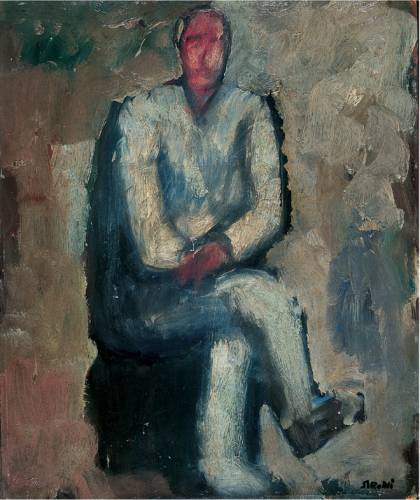
This 1950 recording of Hindemith's song-cycle Das Marienleben has reminded me of how much I treasure a good, vintage "room sound." By room sound I mean that it sounds as though it were recorded in a small room—judging by the reverb in this recording, I would guess it was recorded in a room measuring about 14'x18' with a ceiling no higher than 10', perhaps with a window open and several listeners smoking pensively on plush chairs. This, for me, is chamber music sounding its best. Why would you record chamber music in a church or a large concert hall? The music is written for 'room sound'—it is delicate music, with changes in dynamic which require the subtlety of close reverb to be heard. The extended reverb of a great hall drowns such nuances, demanding to be filled with the sonic might of an orchestra. Chamber music is private music: living room, salon, or even bedroom music.
This recording is of the second version of Das Marienleben from 1947, Hindemith's "final word", going against that of Schoenberg, who preferred the 1927 version (which I assume is somewhat less neoclassical, though I have not heard it). The music is classic Hindemith, confidently straddling the gap between atonal formalism and neoclassical impressionism. Hindemith works best as chamber music, where his understated experimentalism is allowed to blossom comfortably within a similarly demure aural sphere.
I haven't yet paid much attention to Rilke's text here, although if Beckett is right, that Rilke, like Klopstock, suffers from "the fidgets"—and has the "childishness to which German writers seem specially prone" to "call the fidgets God, Ego, Orpheus and the rest"—we should be grateful to have such fidgeting transformed into bold, semi-tonal Lyrik. (Poetry can be useful). "The mystic heart, geared to the blaue Blume, petrified!" Hindemith thankfully escapes fidgeting mysticism (perhaps thanks to the ever-steadying close reverb of a small room), producing instead a set of modernist devotional Lieder for the listening pleasure and sober meditations of the refined Christian atheist-aestheticist.

No comments:
Post a Comment